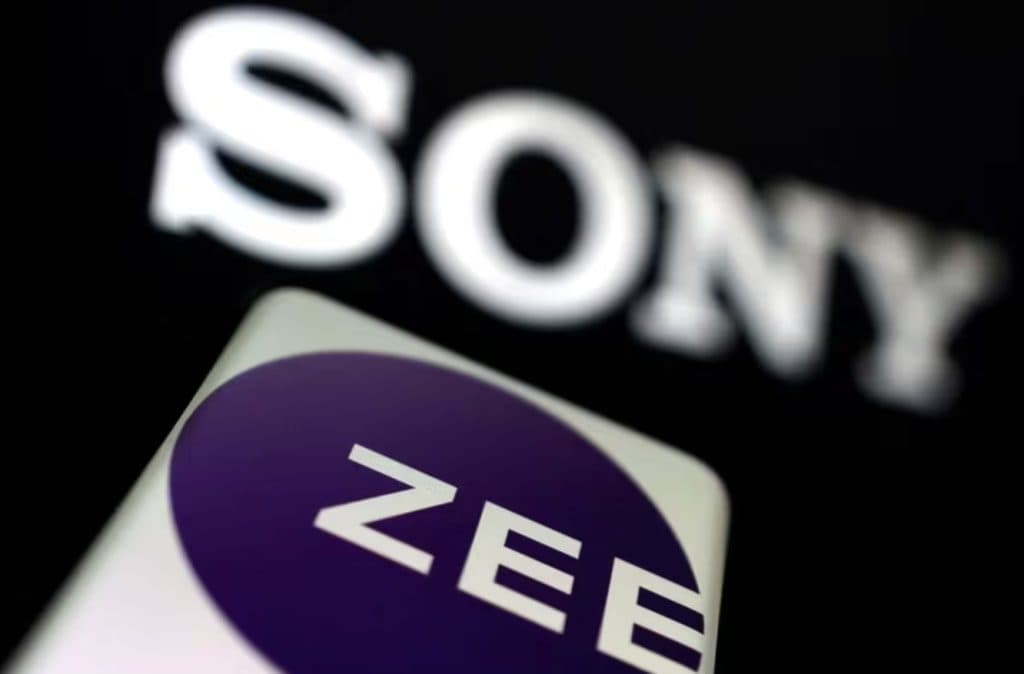
BENGALURU, Jan 22 (Reuters) – Japan’s Sony Group (6758.T), opens new tab scrapped plans on Monday for a $10 billion merger of its Indian unit with Zee Entertainment (ZEE.NS), opens new tab, ending a deal that could have created one of the South Asian nation’s biggest TV broadcasters.
The collapse of the deal in content-hungry India creates more uncertainty for TV broadcaster Zee in particular as competition heats up, with Disney (DIS.N), opens new tab also seeking to merge its Indian businesses with the media assets of billionaire Mukesh Ambani’s Reliance (RELI.NS), opens new tab.
Zee told Indian stock exchanges Sony was seeking $90 million in termination fees for alleged breaches of their merger agreement and emergency interim relief by “invoking arbitration”. Zee said it denies all claims made by Sony and would take appropriate legal action.
Sony said in a statement certain “closing conditions” to the merger were not satisfied despite “good faith discussions” with Zee, and the companies had been unable to agree upon an extension by their Jan. 21 deadline.
“After more than two years of negotiations, we are extremely disappointed … We remain committed to growing our presence in this vibrant and fast-growing market,” it added.
While neither Sony nor Zee elaborated on Monday on which conditions had been unfulfilled, a stalemate over who will lead the combined company had put the merger in danger.
Zee had proposed that CEO Punit Goenka take the helm, but Sony balked after he became the subject of an investigation by India’s market regulator. Zee said on Monday Goenka had been “agreeable to step down in the interest of the merger”.
A source with direct knowledge however said Sony was not keen to proceed unless Goenka backed out before the closure of the merger, rather than after the deal had been sealed as he had proposed.
‘A SIGN FROM THE LORD’
Last year, the Securities and Exchange Board of India barred Goenka from holding directorships at any listed company, accusing him of being involved in diverting Zee’s funds to the group’s other listed entities.
Goenka denied the allegations. An Indian tribunal lifted the ban on him in October but said he would have to cooperate with any investigation by the regulator.
The executive, who was in India’s Ayodhya city to attend the grand opening of a Lord Ram temple, wrote on X that he sees the collapse of the Sony deal as “a sign from the Lord”, adding he would move forward by strengthening his company for stakeholders.
Zee is currently contending with declines in advertising revenue and cash reserves. Its cash reserves fell to 2.48 billion rupees in the six months ended Sept. 30 from 5.88 billion rupees a year earlier.
The Indian company said it had undertaken several steps for the Sony deal resulting in “one-time and recurring costs”, but will now “continue to evaluate organic and inorganic opportunities for growth”.
With channels in segments like news and entertainment in Hindi and other languages, Zee has for years been a household name in India. It was set up in 1992 by Subhash Chandra, Goenka’s father, who is often dubbed the “Father of Indian Television”.
Sony, which too has entertainment channels in India and a streaming service, together with Zee would have had a portfolio of 90 plus channels.
“The failure of the Zee-Sony merger will be disappointing for shareholders – this merger had the potential to materially change industry dynamics,” said Hetal Dalal, president and chief operating officer of Institutional Investor Advisory Services.
Sony said it did not expect any material impact from the termination to its estimates for the year ending in March, as it had not factored the deal into its outlook.
Zee shares are down about 8% from their levels before the merger was first announced in September 2021.























